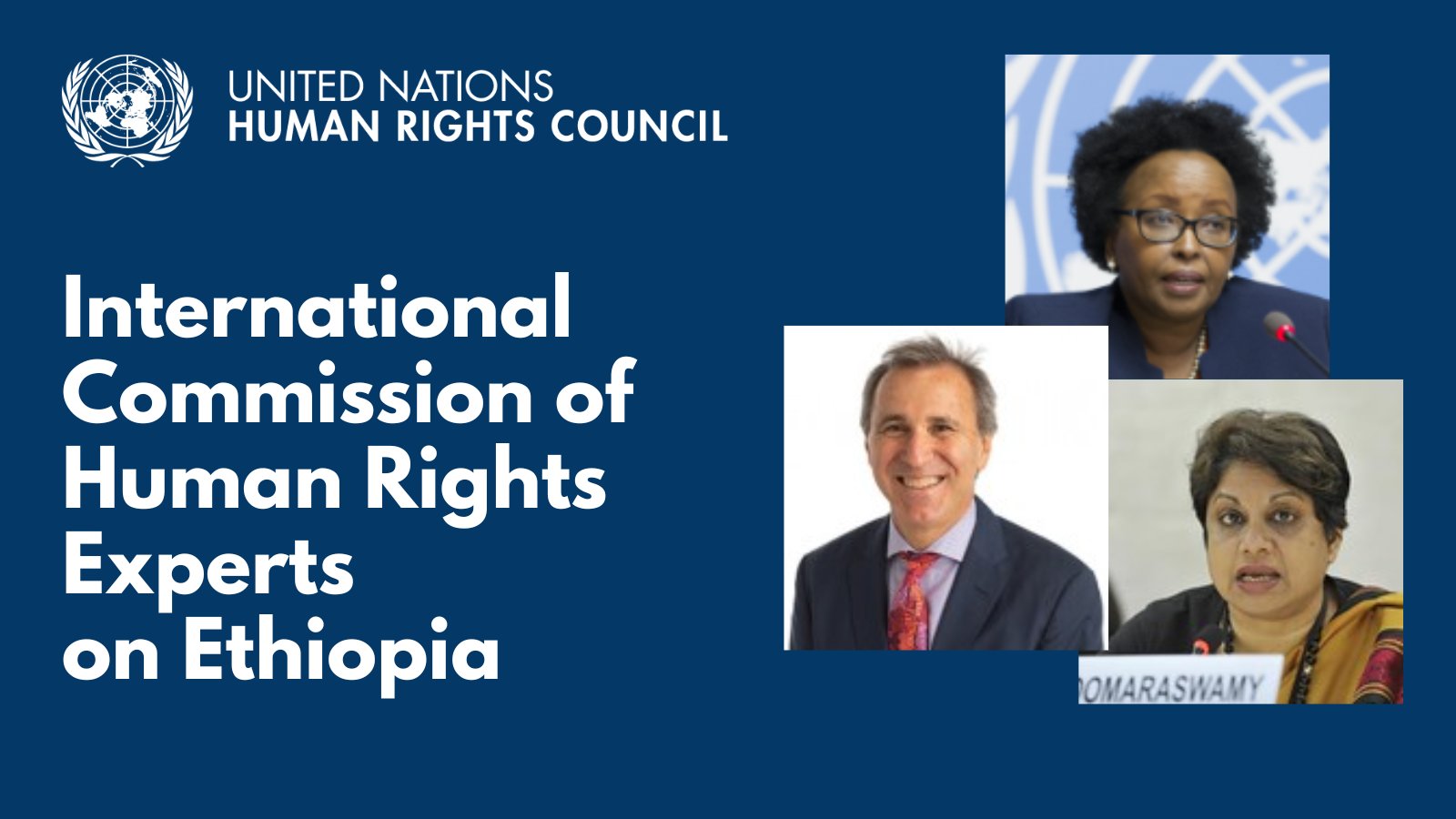The International Commission of Human Rights Experts on Ethiopia (ICHREE) released its final report today detailing human rights violations committed during the two-year war in Tigray, Amhara, Afar and ongoing conflict in the Oromia region before its mandate was terminated.
The draft motion to extend the ICHREE was not renewed and passed its deadline on October 4th, despite repeated appeals from leading human rights organisations worldwide calling for its extension.
In the weeks prior to this deadline, members of the Commission sounded alarms over the high risk of continued atrocities absent independent investigations into ongoing human rights abuses in the country. They expressed deep concerns about the potential for further crimes against civilians given the volatile climate in Ethiopia.
Thousands died in a two-year conflict between the government and regional forces from Tigray, which formally came to an end in November last year. Both sides accused each other of atrocities, including massacres, rape and arbitrary detentions, but each denied responsibility for systemic abuses.
In the report released at the end of the Human Rights Council’s 54th session, the commission implicated Ethiopian federal forces, Eritrean forces, and allied regional forces in “mass killings, widespread and systematic rape and sexual violence, including sexualised slavery against women and girls, deliberate starvation, forced displacement, and large-scale arbitrary detentions which amount to war crimes and crimes against humanity”.
It accused Tigrayan forces of “killings, widespread rape and sexual violence, destruction of property and looting amounting to war crimes”.
Ethiopia, which denies committing widespread abuses, has strongly opposed the investigation and tried to cut its work short. It has instead promoted its own national justice policies as the preferred avenue of inquiry - an approach the U.N. commission described as "deeply flawed".
“The scale and continuity of violence in Ethiopia since 03 November 2020 is such that the present report cannot be considered to be fully reflective of the harms experienced by civilians in the regions under investigation,” said Mohamed Chande Othman, the chairperson of the Commission.
The commission said it did not have sufficient time or resources to make a determination on potential genocide or crimes of extermination. But Othman stressed the vital need for fuller investigations to establish facts and legal accountability.
Commission expert Radhika Coomaraswamy said hopes for domestic accountability are “extremely remote,” leaving victims desperate for regional and international action. Fellow expert Steven Ratner called it a major blow for victims that the commission’s work was halted prematurely, stressing that “it is essential that this work continues.”,
With its mandate terminated after today’s presentation, the commission issued a stern warning that the road to justice must not end here. It expressed grave concern over the continued presence of Eritrean forces in Tigray, saying their violations both before and after recent ceasefire deals underscore how impunity breeds further atrocities.
Commenting on the lapsing of the investigation, Lucy McKernan, who follows U.N. human rights mechanisms for Human Rights Watch, said: "Having no resolution is scandalous in the face of the report of the experts that was just published."
Physicians for Human Rights, a New York-based advocacy group that uses science and medicine to document and campaign against mass atrocities, deplored the failure to renew the mandate.
"Without the comprehensive and sustained independent investigation that ICHREE has been providing there can be little hope that survivors, their families and communities can be healed and receive justice," said Saman Zia-Zarifi, the group's executive director.
On Tuesday, the EU pledged a $680 million aid package that it had delayed in 2021 due to the war and said the two sides were working to "gradually normalise relations".
A European diplomat said the EU expected Ethiopia to implement a robust and transparent "transitional justice policy, deal with prosecution and enhance accountability, in line with regional and international human rights standards."
"We expect quick and tangible progress in the coming months, also in view of the next session of the Human Rights Council," the diplomat said, referring to the session beginning in February next year.
Read more here
Read the report here
We need your support
Sri Lanka is one of the most dangerous places in the world to be a journalist. Tamil journalists are particularly at threat, with at least 41 media workers known to have been killed by the Sri Lankan state or its paramilitaries during and after the armed conflict.
Despite the risks, our team on the ground remain committed to providing detailed and accurate reporting of developments in the Tamil homeland, across the island and around the world, as well as providing expert analysis and insight from the Tamil point of view
We need your support in keeping our journalism going. Support our work today.
For more ways to donate visit https://donate.tamilguardian.com.


